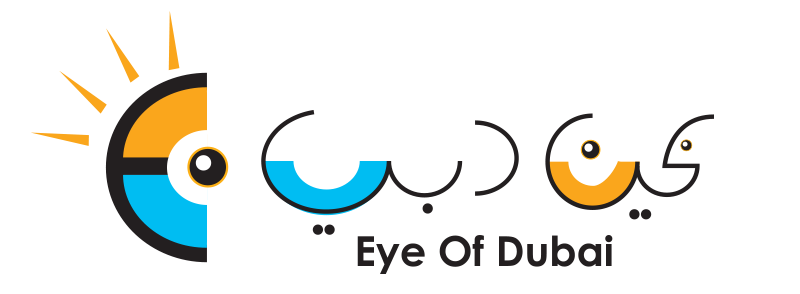
Managing Hypertension: Exploring Effective Treatment Strategies
Hypertension, also known as high blood pressure, is a silent killer that affects millions of people worldwide. In the United Arab Emirates (UAE), it is a growing concern, with approximately 30% of the population suffering from this condition*.
This is why speciality clinics like Royal Medical Centre developed exclusive treatments. You can easily book appointments at royalmedical.ae and effectively eliminate hypertension and related issues.
In this article, we will decode the complexities of hypertension, exploring its causes, symptoms, and, most importantly, the effective treatment strategies that can help individuals regain control of their health.
Understanding Hypertension
Before delving into treatment strategies, it is essential to understand what hypertension is and its causes.
Hypertension occurs when blood pressure in arteries is elevated, putting extra strain on the heart and blood vessels.
The normal blood pressure range is 120/80 mmHg, with hypertension diagnosed when the reading exceeds 140/90 mmHg.
Several factors contribute to the development of hypertension, including:
- Genetics: Family history plays a significant role in hypertension development.
- Lifestyle: Sedentary behavior, excessive salt consumption, and obesity are all contributing factors.
- Age: Blood pressure tends to increase with age.
- Underlying medical conditions: Diabetes, kidney disease, and sleep apnea can all contribute to hypertension.
Symptoms of Hypertension
Hypertension is often called a silent killer because it rarely shows any symptoms in its early stages. However, as the condition progresses, individuals may experience:
- Headaches
- Dizziness
- Nosebleeds
- Fatigue
- Palpitations
Effective Treatment Strategies for Hypertension
Managing hypertension requires a multi-faceted approach that incorporates lifestyle changes, medications, and alternative therapies. Let's explore each of these strategies in detail.
1. Lifestyle Changes
Lifestyle modifications are essential for managing hypertension. By making simple changes to daily habits, individuals can lower their blood pressure and reduce the risk of complications.
Dietary Changes: Eating a healthy, balanced diet low in sodium and rich in fruits, vegetables, and whole grains can help lower blood pressure. The DASH (Dietary Approaches to Stop Hypertension) diet is a proven effective eating plan for individuals with hypertension.
Regular Exercise: Regular physical activity, such as walking, swimming, or cycling, can help lower blood pressure and improve overall health.
Weight Management: Maintaining a healthy weight is crucial for managing hypertension. Excess weight can put additional strain on the heart and blood vessels.
Stress Management: Stress can exacerbate hypertension. Practicing stress-reducing techniques, such as meditation, Yoga, or deep breathing exercises, can help manage stress and lower blood pressure.
Yoga: By combining physical postures, breathing techniques, and meditation, Yoga reduces stress and lowers blood pressure.
Biofeedback: Biofeedback involves training individuals to become aware of their body's physiological responses, such as heart rate and blood pressure, and learning to control them.
2. Medications
For individuals with moderate to severe hypertension, medications are often necessary to control blood pressure. There are several types of medications available, including:
Diuretics: These medications help remove excess fluid from the body, reducing blood pressure.
Beta Blockers: Beta-blockers slow the heart rate and reduce the force of the heart's contractions, decreasing blood pressure.
Angiotensin-converting enzyme (ACE) Inhibitors: ACE inhibitors block ACE action. This chemical constricts blood vessels and increases blood pressure.
3. Medical Treatment Procedures
Besides lifestyle changes and medications, medical treatment procedures may be necessary for individuals with severe hypertension or those who do not respond to other treatments. Some common medical treatment procedures for hypertension include:
I. Renal Denervation
Renal denervation is a minimally invasive procedure that reduces blood pressure by disrupting the nerve signals that regulate blood pressure from the kidneys to the brain.
The procedure involves inserting a catheter through an artery in the leg and guiding it to the renal arteries, which supply blood to the kidneys.
Once in place, the catheter delivers radiofrequency energy to heat and deactivate the nerves surrounding the renal arteries.
It interrupts the nerve signals that stimulate the kidneys to release hormones that increase blood pressure.
Renal denervation is effective in reducing blood pressure in patients with resistant hypertension, which is hypertension that remains uncontrolled despite the use of multiple medications.
The procedure is usually performed under local anesthesia and can take around 30-60 minutes to complete.
While renal denervation is not a cure for hypertension, it can help reduce blood pressure and improve cardiovascular outcomes.
II. Baroreflex Activation Therapy
Baroreflex activation therapy (BAT) is a device-based treatment that aims to regulate blood pressure by stimulating the baroreflex.
This natural mechanism helps lower blood pressure. The baroreflex is a complex system that involves specialized sensors in the walls of blood vessels that detect changes in blood pressure and send signals to the brain to adjust blood pressure accordingly.
BAT involves implanting a small device, called the Barostim neo, in the chest, which is connected to a lead that stimulates the baroreflex.
The device is programmed to stimulate the baroreflex in a way that mimics the natural response to high blood pressure, which helps lower blood pressure and improve cardiovascular outcomes.
BAT is usually indicated for patients with resistant hypertension who have not responded to other treatments.
III. Radiofrequency Ablation
Radiofrequency ablation (RFA) is a minimally invasive procedure that uses heat energy to destroy nerves regulating blood pressure.
The procedure involves inserting a catheter through an artery in the leg and guiding it to the targeted nerve fibers.
Once in place, the catheter delivers radiofrequency energy to heat and destroy the nerve fibers.
RFA is usually used to treat conditions such as hypertension, atrial fibrillation, and chronic pain.
In hypertension, RFA is used to denervate the sympathetic nervous system, which regulates blood pressure.
By destroying the nerve fibers, RFA can help reduce blood pressure and improve cardiovascular outcomes.
The procedure is usually performed under local anesthesia and can take around 30-60 minutes to complete.
Final Words
When managing hypertension, it is essential to work with a healthcare provider with the expertise and resources to provide effective treatment. The Royal Medical Center in the UAE is a leading provider of clinical treatments, offering a comprehensive range of services for hypertension patients.
If you or a loved one is suffering from hypertension, we encourage you to take the first step towards a healthier future. Contact The Royal Medical Center today to schedule an appointment and begin your journey towards effective hypertension management.
https://bmccardiovascdisord.biomedcentral.com/articles/10.1186/s12872-022-02457-4





























